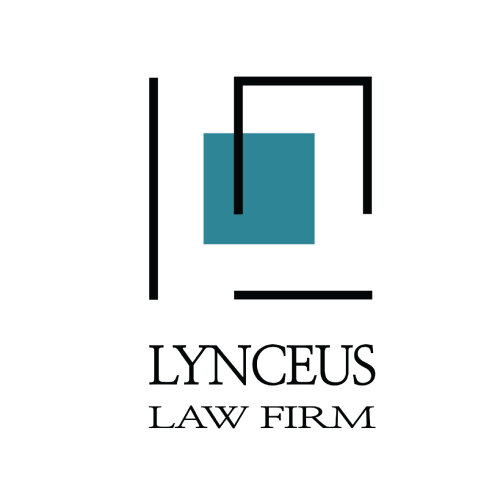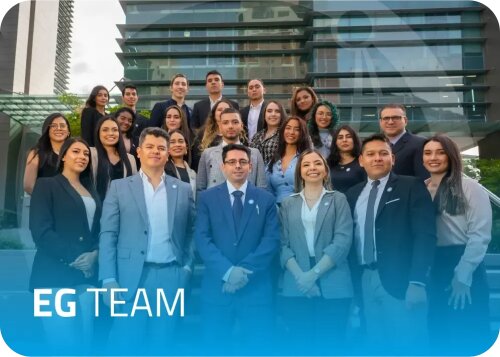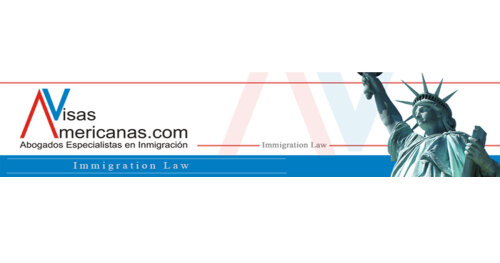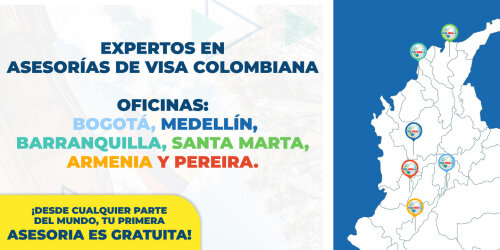Best Immigration Lawyers in Colombia
Share your needs with us, get contacted by law firms.
Free. Takes 2 min.
Or refine your search by selecting a city:
List of the best lawyers in Colombia
About Immigration Law in Colombia
Immigration law in Colombia is structured to manage the flow of foreign nationals into the country, covering aspects such as visas, residency, work permits, and citizenship. The Colombian government has a diverse set of policies aimed at attracting skilled workers, entrepreneurs, and retirees, while also addressing asylum seekers and refugees. Over recent years, Colombia has seen an increase in immigration, partly due to regional instability, thus evolving its legal landscape to manage new challenges.
Why You May Need a Lawyer
Engaging with immigration law can be complex, and there are numerous situations where legal assistance is beneficial. You might need a lawyer if you are applying for a specific visa type that requires nuanced understanding of eligibility criteria, if there is a language barrier that complicates paperwork and communication, or if you are facing deportation or other legal challenges. Additionally, having a lawyer can help expedite processes, correct documentation errors, and provide representation in legal matters related to asylum claims or family reunifications.
Local Laws Overview
Key aspects of Colombian immigration laws include visa classifications (tourist, work, student, investment, etc.), temporary and permanent residency requirements, and paths to citizenship. Legislation also sets out how foreign nationals can legally work in Colombia, outlining requirements for work permits and the roles Colombian companies must play when hiring foreign labor. Colombia honors international agreements related to migrants and refugees, providing mechanisms for asylum seekers. Recent legal reforms aim at improving integration strategies for immigrants and ensuring compliance with international human rights standards.
Frequently Asked Questions
What types of visas are available in Colombia?
Colombia offers various visas such as the Visitor Visa (for tourism, business, events, and studies), the Migrant Visa (for work, marriage, business investment, pensioners), and the Resident Visa (for those holding a Migrant Visa for more than five years, among others).
How can I apply for a visa in Colombia?
Visa applications should be submitted through the Colombian Ministry of Foreign Affairs website or at a Colombian consulate. It often requires documentation such as passport copies, photographs, and proof of purpose for the visit (employment contract, invitation letters, etc.).
What are the requirements for obtaining Colombian citizenship?
Foreign nationals can apply for Colombian citizenship after living in Colombia continuously under a Resident Visa for five years. This period is reduced to two years for nationals of some Latin American countries and for those married to Colombian citizens or with Colombian children.
How does the Colombian government handle asylum seekers?
Colombian law provides protection to refugees and asylum seekers in accordance with international agreements. Applications for asylum are processed by the Ministry of Foreign Affairs, providing not only protection but also aid in integration.
Can foreign nationals own property in Colombia?
Yes, Colombia allows foreign nationals to own property without any restrictions. Real estate investment is often encouraged as it can be a pathway to obtaining some types of visas.
Do I need a work permit to be employed in Colombia?
Yes, foreign nationals need a work permit, which is typically granted through a Migrant Visa linked to an employment contract or entrepreneurship.
What happens if I overstay my visa?
Overstaying a visa can result in fines, and it may affect future visa applications. It is important to contact an immigration lawyer or the authorities to resolve such situations promptly.
Is speaking Spanish mandatory for immigration processes?
While not officially required, Spanish proficiency is highly beneficial as most official documents and communication are conducted in Spanish. Legal representatives can offer assistance with language barriers.
How can I check the status of my visa application?
You can check the status of your visa application online through the official website of the Colombian Ministry of Foreign Affairs using the application ID you received at submission.
Can I travel freely within Colombia on a tourist visa?
Yes, a tourist visa allows you to travel freely within Colombia, but you must not engage in any employment or paid activities unless otherwise specified under a different visa category.
Additional Resources
For more information and assistance, you can contact the following resources:
- The Colombian Ministry of Foreign Affairs: For official guidelines and visa application processes.
- International Organization for Migration (IOM) Colombia: Offers support and informed advice for migrants.
- UNHCR Agency in Colombia: Provides protection and support to refugees and asylum seekers.
- Local non-profit organizations: Such as Fundación para los Derechos y la Ley, offering legal assistance and resources for immigrants.
Next Steps
If you find yourself in need of legal assistance regarding immigration in Colombia, consider taking the following steps:
- Identify your specific immigration issue, whether it involves visa applications, residency, citizenship, or asylum.
- Gather all pertinent documents related to your situation, such as passports, existing visas, employment contracts, or asylum papers.
- Consult with a qualified immigration lawyer in Colombia who specializes in the specific area of your needs. Initial consultations can often help outline your options and potential pathways.
- Stay informed of any changes to Colombian immigration law that might affect your situation, and maintain open communication with relevant authorities and your legal advisor.
Lawzana helps you find the best lawyers and law firms in Colombia through a curated and pre-screened list of qualified legal professionals. Our platform offers rankings and detailed profiles of attorneys and law firms, allowing you to compare based on practice areas, including Immigration, experience, and client feedback.
Each profile includes a description of the firm's areas of practice, client reviews, team members and partners, year of establishment, spoken languages, office locations, contact information, social media presence, and any published articles or resources. Most firms on our platform speak English and are experienced in both local and international legal matters.
Get a quote from top-rated law firms in Colombia — quickly, securely, and without unnecessary hassle.
Disclaimer:
The information provided on this page is for general informational purposes only and does not constitute legal advice. While we strive to ensure the accuracy and relevance of the content, legal information may change over time, and interpretations of the law can vary. You should always consult with a qualified legal professional for advice specific to your situation.
We disclaim all liability for actions taken or not taken based on the content of this page. If you believe any information is incorrect or outdated, please contact us, and we will review and update it where appropriate.
Browse immigration law firms by service in Colombia
Colombia Attorneys in related practice areas.
Browse immigration law firms by city in Colombia
Refine your search by selecting a city.
















